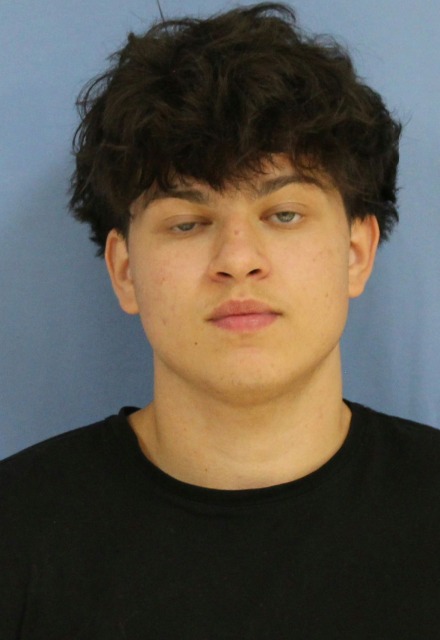Looking for hope
Published 12:00 am Wednesday, January 23, 2013
By Kimberly Hopson
L’Observateur
GARYVILLE – For the second year in a row, Garyville has had the misfortune of being the site of the new year’s first murder.
In 2012, 23-year-old Kevin Ferrygood was shot and killed in the city. Ferrygood was found lying on the ground on the intersection of South Fig and Daisy streets. This year was similar — Michael Lee, another young victim, was shot several times in the torso on Little Hope Street. Lee died from his injuries after being transported to a New Orleans-area hospital.
According to 2010 census data, Garyville makes up 6.1 percent of the total population St. John the Baptist Parish, but has produced 14.5 percent of its homicides within the last decade with a total of nine, according to data amassed by St. John the Baptist Parish Sheriff’s Office.
The citizens of Garyville say the violence is not unique to their area, but they are still concerned at the amount of violence that has taken place in the small community. The residents have varying opinions regarding what is causing it and what can be done to prevent it. In perhaps a sign of the fear the crime has produced in area residents, most spoke on condition of anonymity.
“They don’t have activities for the young kids to get into. And they don’t have no role models,” said Leroy G., 47. “I’ve seen a lot. I have age on me. The older folks have to show the younger ones a better example in life.”
50-year-old W.J. agreed there should be more organized activities for children, but feels that the key to the solving the problem is getting through to the hearts of the youth.
“You got a young generation coming up now. The laws that were made back in the game have to be changed. You have to put fear in the youngsters now because they don’t fear anybody,” he said. “They kill in general now. If you put something on their hearts or in their minds, they might think before they pull that trigger.”
Twenty-year-old Michelle J. said she feels sad that the situation has reached this point but wonders if anything at all can be done about the violence.
“It hasn’t affected me personally, but the people around me. It’s sad. To be honest with you, I don’t know what the cause is. It’s just people I guess,” she said. “It could happen to anyone, to be in the wrong place at the wrong time. Someone wants to kill your friend, and you end up taking a bullet for your friend. What can you do about it?”
Marshall M., 32, said he knows from experience that it can take years for someone to re-enter society after living a life of violence or doing serious jail time. Marshall thinks a large part of the problem is the lack of job opportunities across the board, not just for offenders.
“Everybody looking for jobs, and everybody is confused, frustrated. Some people have to start off from the bottom. They think everybody got a college degree, but some people ain’t got that,” he said.
“Back in the day that was all I knew. You get to a point in your life where you say, I’m tired, y’know. Back and forth from prison and stuff like that, you get tired. I’m old school, so you know how the young generation is. I turned my life over, but it’s something that took a while,” he said. ”It’s not something that took like a week or a year — it took years to get out of the system because my mind was all messed up, y’know. I don’t want to see nobody go and be a slave up that road. I’ve been there, and once you get there it’s a jungle.”
“This didn’t just start happening this year. It won’t stop. It’s all over the world. They might slow it down a little bit, but it won’t ever stop,” he continued. “It’s time for this killing to stop. It’s a new year. If they don’t stop the violence, people will start moving. No child should grow up in this environment, with people killing each other behind dice and card games, gossip. That just ain’t working, y’know. It’s time for change.”
St. John Parish Sheriff Mike Tregre also thinks there is a direct connection between incarceration, education and the job market. Tregre said that most of the incarcerated people in St. John do not possess a basic high school diploma, and many offenders end up in jail again because of the lack of opportunity to improve their situations.
“We’ve got to get these guys into the work force,” said Tregre. “They walk out of here, out of our correctional facility. When you get to Airline Highway, if you don’t have any education and not a penny in your pocket, chances are you’re coming back.”
Tregre said just locking people up just isn’t working. Because of this, Tregre is in the midst of talks to implement two new programs that may help uproot the cause of the violence. Tregre would like to begin teaching prisoners vocational skills so they will have a chance to re-enter society after being incarcerated and become productive citizens.
“I think that I need to provide some type of job skills for some of the inmates that fit a certain criteria,” said Tregre. “I want to have instructors come in and teach concrete finishing, ceramic tiles, painting, window tinting, culinary arts and small engine repair and give these guys a skill or a trade so they can go out and become a working-class citizen.”
Tregre’s second program focuses on younger children. Tregre would like to close off a section of the jail and provide elementary school children with the chance to tour the facility. The project is designed to change the mindset that it is OK or acceptable to go to jail but will not be centered around “Scared Straight”-style tactics of learning. The project is already off the ground — Tregre has created waiver forms for parents to sign and will begin selecting schools to participate soon. He plans to do the tours a couple of times a month for the remainder of the year.
“I’m not trying to scare them at all. I want them to see and experience,” said Tregre. “I’m not here to shout at them. I want them to see first-hand what the jail sounds like, looks like, smells like, how it’s designed. You have trips to Angola, but I want them to see here.”
Tregre said there is a chance these programs may not work to prevent violence in the parish at all, but he cannot give up without having tried.
“I’m just not satisfied with seeing the same people coming back. You know, you can go to the classroom, and the teachers can point out which one is going to be successful, and that one’s going be for you sheriff,” he said. “And they do that with accuracy. I know one thing: if we don’t try something, we fail. If we provide them with these things, and they come back, then I’ll say we tried, and we failed. But until we try, I can’t say we failed.”






